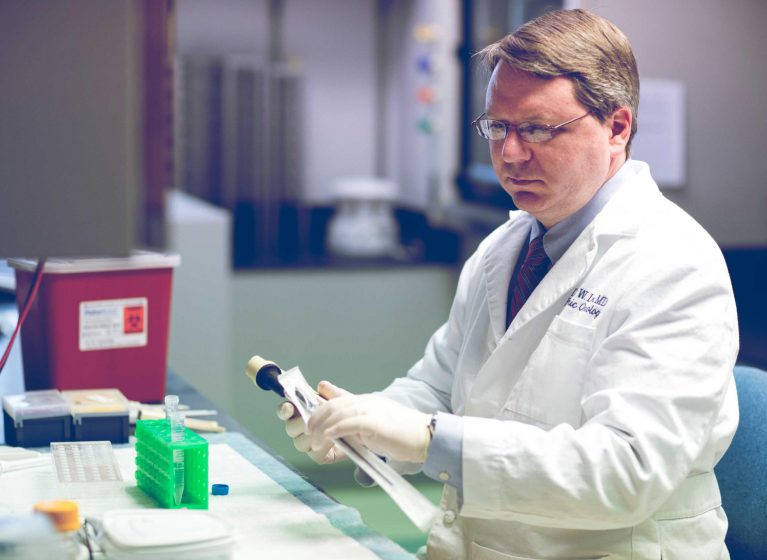Stem cell transplants can dramatically reduce the relapse rate in children who receive CAR T-cell therapy for acute lymphoblastic leukemia, a new study from our Daniel "Trey" Lee, MD, finds.
CAR T-cell therapy weaponizes the body's immune cells to become better cancer killers. It results in complete remission in 60%-100% of the young patients initially, but the relapse rate is high -- one study found that more than 40% had relapsed 13.1 months later.
But stem cell transplants make a big difference, according to Dr. Lee's new study. Among 21 young people who received an allogenic stem cell transplant after CARs, only 9.5% had relapsed 24 months later. In comparison, all of those who did not receive a stem-cell transplant had relapsed.
The study looked at a total of 50 patients ages 4 to 30, with a median age of 13.5 years.
“Even as impactful as CAR T-cell therapy is for children with relapsed leukemia, we now know that the best outcomes happen when the child undergoes a stem cell transplant afterwards,” said Dr. Lee, of UVA Cancer Center. “Many parents turn to CAR T-cells to possibly avoid a stem cell transplant, and that is entirely understandable. But there is a window of opportunity after CARs to cure more of these incurable kids with a transplant; our study demonstrates this.”
For his next steps, Dr. Lee hopes to develop a way to identify which children need a stem-cell transplants and which do not.
